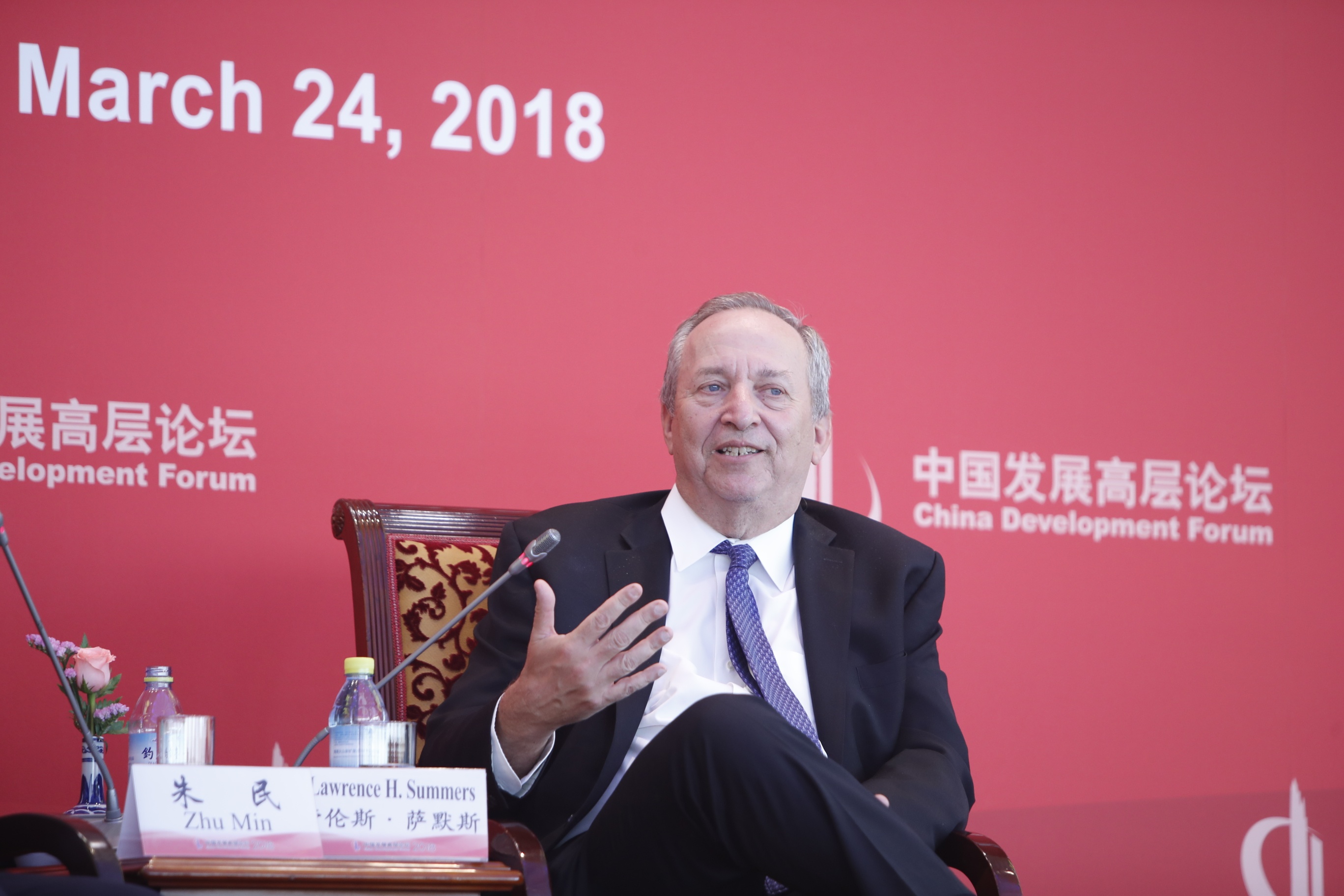China, US codependency determined by fate: ex-treasury secretary
- By Zhang Liying
 0 Comment(s)
0 Comment(s) Print
Print E-mail China.org.cn, March 25, 2018
E-mail China.org.cn, March 25, 2018

The codependency of China and the United States is determined by fate, not by choice, former U.S. Treasury Secretary Lawrence Summers said on Saturday. He made the remarks in a discussion on the theme of "China-U.S. Relations in the New Era" during the China Development Forum 2018 held in Beijing.
The American economist said that in a world of climate change, potential nuclear proliferation, terrorism and possible pandemics, there is more for China and the United States to collaborate on than to disagree on.
"We are in a rather small boat in a very choppy sea, and we both will make it, or we both will not, and the appreciation of that reality on both sides is important," Summers said.
He said he welcomed the Chinese call for a new form of great power relationship, and contends that China and the United States should respect each other's systems, collaborate on common global concerns and establish rules and procedures for managing commercial disputes.
"Our two nations can contribute to making a much better world than any we have seen so far," he said.
In June 2013, Chinese President Xi Jinping proposed building a new model of major-country relations during his meeting with then U.S. President Barack Obama.
This new model features three principles, namely non-conflict or confrontation, mutual respect, and mutually beneficial cooperation.
Summers also noted that the United States "will continue to have a big role, but it is perhaps less entirely singular than it has been in the decades after the Cold War."
When asked about his opinion on the recent trade conflicts between the two countries, he said that Ronald Reagan's remarks regarding nuclear weapons were equally true for a trade war:"A nuclear war cannot be won and must never be fought."
What makes dialogues more difficult now is that the Chinese government is taking a strategic and long-term view of the world, while the U.S. government is taking a transitional and short-term view, he said.
In response to a question about a possible trade war, Chinese Foreign Minister Wang Yi said in a press conference on March 8, that "a trade war is particularly unhelpful in a globalized world, as it will harm both the initiator and the target country."
He said that as the world's largest economies, China and the United States "must bear in mind not just the interest of our two peoples, but also the well-being of the world."
However, despite strong warnings from business groups and trade experts, U.S. President Donald Trump Thursday signed a memorandum that could impose tariffs on up to US$60 billion worth of imports from China, in addition to restrictions on Chinese investment in the United States.





Go to Forum >>0 Comment(s)